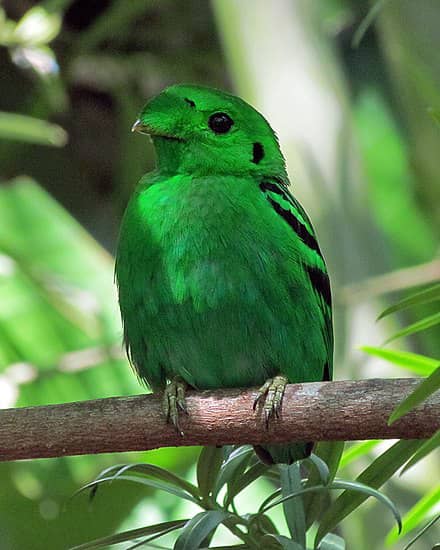Birders, or bird watchers as they are more commonly known, are looking forward to the first-ever international women birder’s conference, which aims to enhance the country’s birding tourism product – birding.

Ugandan bird species come in all sorts of variety, as birders consider it a premium birder’s destination.
Delegates from over ten countries will attend the groundbreaking women birders’ conference, which will take place on December 6th and 8th.
Despite having an impressive 1,100 different bird species, most of which are unique to Uganda, bird-watching (known as birding in tourism) is an underdeveloped activity compared to other attractions such as cultural and physical features, or even in comparison to the more famous gorilla trekking.
Recognizing the potential of bird-watching tourism, the private sector has joined forces with the government to promote it. Birders are known to be the highest-spending and longest-staying visitors in any destination.
The Shoebill, Green Breasted Pitta, Rwenzori Turaco, African Green Broadbill, Brown-chested Lapwing, Jameson’s Antpecker, Nahan’s Francolin, Black Bee-eater, Karamoja Apalis, and Puvel’s Illadopsis are all unique bird species found in Uganda. The Shoebill is the most popular of the birds, closely followed by the Jameson’s Antpecker.
Uganda has up to 34 Important Bird Areas (IBA), with many of them developed for birdwatching and birding tours. In addition, the Ugandan birding community is identifying new bird-rich areas across the country and establishing birding trails.
The Mabamba Bay Wetland is arguably the best and most likely place to spot the elusive yet magnificent Shoebill. Entebbe Peninsula, Lutembe Bay Wetland, Lazurus Forest, Kibale Forest National Park, Rwenzori Mountains National Park, Kidepo Valley National Park, Lake Mburo National Park, Queen Elizabeth National Park, Semuliki National Park, Budongo Forest – The Royal Mile trail in Busingiro, and Murchison Falls National Park are among the other birding destinations.
Found at most of these birding spots throughout Uganda are local site guides that have been trained in bird identification and can identify all the site’s resident species.
The incredible diversity of habitats that no other area in Africa can match is the reason Uganda harbors such a huge diversity of birds and collects so many migrant birds during the year. Uganda is unique in that it shares Africa’s major ecological zones (aside from the sea), each of which has associated bird species, many of which are range restricted.
Martin Mugara, the state minister for Tourism, Wildlife, and Antiquities, acknowledged that birding has the potential to increase the country’s foreign revenue.
According to the minister, deliberate efforts to document the various bird species and their behavior within the country, such as marketing what is known, are required to effectively promote bird-watching as a tourism package for Uganda.
Herbert Byaruhanga, the executive director of the Uganda Tourism Association, believes that the conference will increase Uganda’s appeal as a birding destination, raising awareness about this untapped opportunity among the Ugandan population. Byaruhanga also emphasizes the potential for the birding package to create substantial employment opportunities for the country’s youth.
Judith Mirembe, the Uganda women birders’ representative on the board of the International Women Birders’ Association and the pioneer chairperson of the Uganda women birders, sees bird watching as both an effective tool for environmental conservation and a profitable venture.
According to statistics, birders spend an average of USD 340 to 400 per day during their 14 to 21-day stays in a destination. With a goal to earn USD 700 million from birders by 2030, the potential of birding in Uganda is immense.

The conference will also focus on the conservation of Ugandan birds, which are currently facing threats from various factors. Uganda is home to up to 24 species of the 27 Albertine rift endemics, 50 percent of African birds, 11 percent of the world’s birds, the prestigious shoe bill, and the exclusive Fox’s weaver.
Uganda is poised to take a significant step forward in promoting bird-watching tourism, conserving its avian biodiversity, and creating significant economic opportunities for the country by hosting the first international women birders conference.
